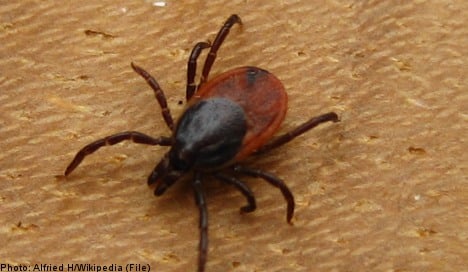“Yes, there are more reported cases than usual, 68 cases. The number for the same period last year was 58,” confirmed Marika Hjertqvist, epidemiologist at the agency to TT.
Tick borne encephalitis, an inflammation of the brain, is caused by a virus carried in the saliva of ticks.
The peak time for contracting the disease is the middle of the summer, but just how many are infected is generally not known until later in the year when patients have sought medical attention for the symptoms, the disease has been diagnosed and the doctors have reported the cases to the agency.
The east coast of Sweden used to be the area mostly affected, but today the disease has spread across the country, although it is rarely reported north of the Dalälven river.
According to experts it is hard to say why some years are worse than others.
“First of all there has to be an increased number of ticks. This in turn requires more deer for them to feed on,” Hjertqvist told TT.
However, even if these two conditions are not met, a very cold and snowy winter can have the same effect, as the ticks are then hungrier.
Last year was a record year for the disease and this year looks to be even worse.
The highest number so far this year was reported in Stockholm, followed by Södermanland County, south of the capital and in Uppsala on the east coast.
Symptoms include a high temperature, severe headache and in some cases cramps but most who contract the disease make a full recovery.
TT/The Local/rm


 Please whitelist us to continue reading.
Please whitelist us to continue reading.
Member comments